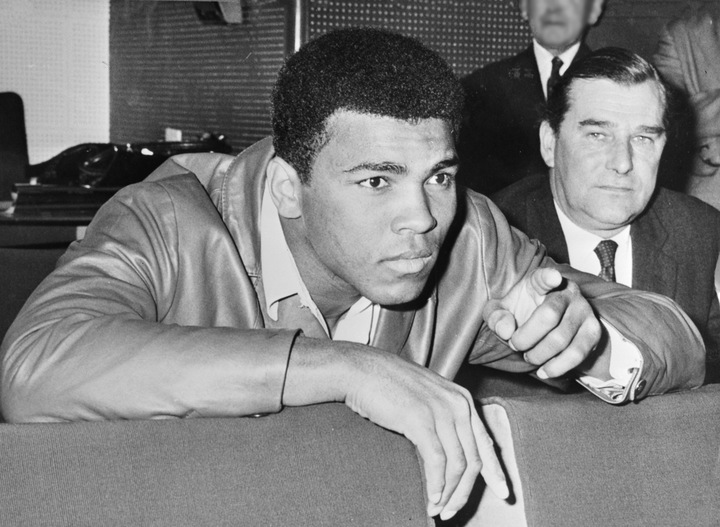A few months after his revenge win over Leon Spinks, in a fight that saw Muhammad Ali make history by becoming the first ever three-time world heavyweight king, the 37-year-old announced his retirement. “The Greatest” had done everything he possibly could in the ring and now, going out on his own terms, Ali’s incredible career had ended the way he wanted it to – with a victory. But it wasn’t long before Ali pushed his luck too far. Ali had found himself another challenge – that of becoming the first man to win the heavyweight crown four times. Ali, drained by taking thyroid pills, was an empty shell against Larry Holmes in October of 1980.
Stopped for the only time in his pro career, Ali would never fight again. Or so everyone with a sound mind believed. But if Ali’s fight with Holmes was one fight too many, the 39 year old was able to make it two fights too many. It was 39 years ago today when Ali, needing money as well as fame, returned to face “a top contender.” Enter Trevor Berbick. Ali, insanely, still had ambitions to make good on his four-time champion ambition. If he could defeat Berbick, a solid heavy, if nothing too spectacular, Ali would get his chance. All these years later, when we know the full and awful price Ali paid for having fought on for far too long, the thought that he would have had another fight if he had he beaten Berbick is chilling. Ali’s quality of life was poor in the 1990s and 2000s, until his passing in 2016. Had Ali’s brain been subjected to yet another fight, it would have been an even worse existence for the man who everyone always felt would go out on top.
Against Berbick, Ali came in at a career-heavy 236 pounds, his body soft and fleshy. But at least Ali was able to fight back against Berbick; this something he was unable to do against Holmes. And in the fight in Nassau, Bahamas, Ali even managed to win a few of the ten rounds the bout was scheduled for. Ali couldn’t dance like he once could, but he did make an effort to get on his toes and to also pump out some punches. There was no snap or sting on Ali’s shots – he could no longer float like a butterfly or sting like a bee, but against the physically strong but lumbering 26-year-old from Jamaica, Ali was able to hear the final bell (the bell used for the fight being a cowbell, as no standard bell was available).
There was almost no fight at all.
Berbick was still uncommitted to fighting just hours before the bout was due to start, Berbick wanting assurance he would be paid in full. The whole show was something of a farce, with ticket sales poor and the under-card boxers all having to share the same dressing room. It was no way for the finest heavyweight boxer of them all to go out. But finally, at last, it was over. Ali had fought his final fight. No longer would he put his health, his life even, on the line. To this day, those two final fights Ali had bug the hell out of his fans. It could have been an almost perfect career: three-time champ, three losses but each of them avenged – Ali waving goodbye with a satisfied smile on his face. Instead, Ali ended up leaving on as sad a note as the man he said he’d never end up like, this being Joe Louis. At least Ali was never knocked unconscious, through the ropes, the way Louis was by Rocky Marciano in his final fight 30 years before Ali-Berbick.
Still, as we all know, Ali’s real fight came after he’d hung up his gloves; this a battle with Parkinson’s that raged until the very end. We will never know if Ali’s latter year health would have been better had he quit the ring two, three, four or five fights sooner than he did. A young Mike Tyson was greatly upset by Ali’s last two fights, with the teenager from Brownsville vowing to get revenge on Ali’s behalf “when I get big.” Tyson certainly did that.
